Regulation of International Financial Markets and International Banking
This research group analyses causes and consequences of banks' international activities and the regulatory framework they operate in.
Internationally active banks can facilitate an efficient international allocation of capital and provide channels for international risk sharing. But they can also be a source of financial instabilities themselves, thus contributing to international contagion and risk-shifting. This is one reason for the current re-regulation of international banking.
The research group contributes to the literature in three ways. First, the group empirically analyses the channels through which shocks are transmitted by internationally active banks. Second, the group analyses the build-up of aggregate imbalances in integrated banking markets and resulting consequences for the real economy. Third, the group analyses the impact of changes in banking supervision and regulation on (inter)national activities of banks, with a special focus on the European integration process.
IWH Data Project: International Banking Library
Research Cluster
Economic Dynamics and StabilityYour contact

Mitglied - Department Financial Markets
EXTERNAL FUNDING
07.2017 ‐ 12.2022
The Political Economy of the European Banking Union
European Social Fund (ESF)
Causes of national differences in the implementation of the Banking Union and the resulting impact on financial stability.
01.2015 ‐ 12.2017
Dynamic Interactions between Banks and the Real Economy
German Research Foundation (DFG)
Refereed Publications
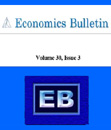
Protect and Survive? Did Capital Controls Help Shield Emerging Markets from the Crisis?
in: Economics Bulletin, No. 1, 2012
Abstract
Using a new dataset on capital market regulation, we analyze whether capital controls helped protect emerging markets from the real economic consequences of the 2009 financial and economic crisis. The impact of the crisis is measured by the 2009 forecast error of a panel state space model, which analyzes the business cycle dynamics of 63 middle-income countries. We find that neither capital controls in general nor controls that were specifically targeted to derivatives (that played a crucial role during the crisis) helped shield economies. However, banking regulation that limits the exposure of banks to global risks has been highly successful.
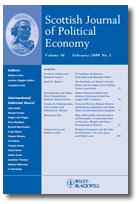
The Impact of Fixed Exchange Rates on Fiscal Discipline
in: Scottish Journal of Political Economy, No. 5, 2011
Abstract
In this paper, it is shown that, contrary to standard arguments, fiscal discipline is not substantially enhanced by a fixed exchange rate regime. This study is based on data from 116 countries collected from 1975 to 2004 and uses various estimation techniques for dynamic panel data, in particular a GMM estimation in the tradition Arellano and Bover (1995) and Blundell and Bond (1998). Contrary to previous papers on this topic, the present paper takes into account that the consequences of a new exchange rate regime do not necessarily fully manifest immediately.
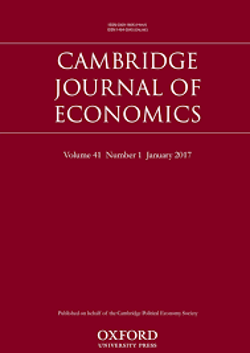
The Role of Rating Agencies in Financial Crises: Event Studies from the Asian Flu
in: Cambridge Journal of Economics, 2010
Abstract
Based on case studies from countries that have been hit hardest by the Asian financial crisis of 1997, the present paper shows that the accusation that sovereign ratings led to a severe acceleration of the crisis is unconvincing and that the empirical method often used to support accusations against rating agencies is inappropriate for the problem under analysis. Rather, it must be emphasised that ratings were downgraded in most countries very shortly before the end of the crisis. In some countries, the ratings were even further downgraded after the end of the crisis as countries started to recover. This is not in line with the thesis that the crisis was accelerated by rating agencies.
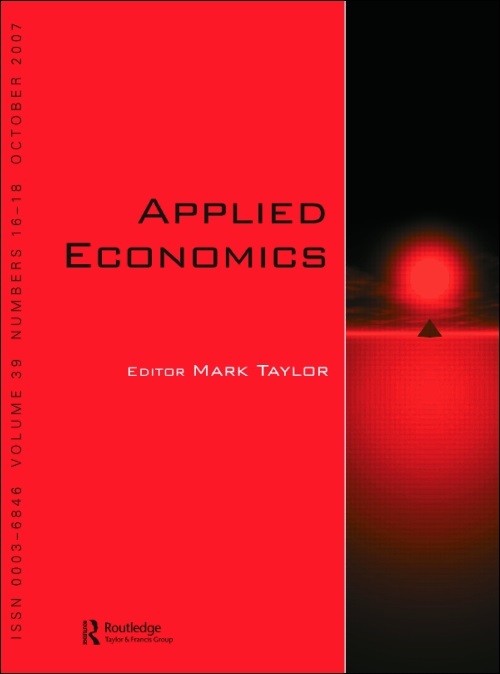
Capital Controls and International Interest Rate Differentials
in: Applied Economics, 2010
Abstract
Since the Asian crises it is often taken as granted that capital markets have significant functional deficits. Often these deficits are believed to be so very strong that the ability of free capital markets to guarantee a more or less correct international allocation of capital is denied. It is argued that speculation dominates capital markets so much that capital allocation is purely random. This is one of the major arguments backing the present trend to re-establish capital controls, which emerged after the capital market distortions observed during the Asian flu. In the present article it is shown that capital markets, while certainly prone to many distortions, are well capable of roughly guiding capital to the proper place. Though allocation is not model-like perfect, this steals the thunder from the idea, that closed or government-guided capital markets were able to perform better.
Working Papers
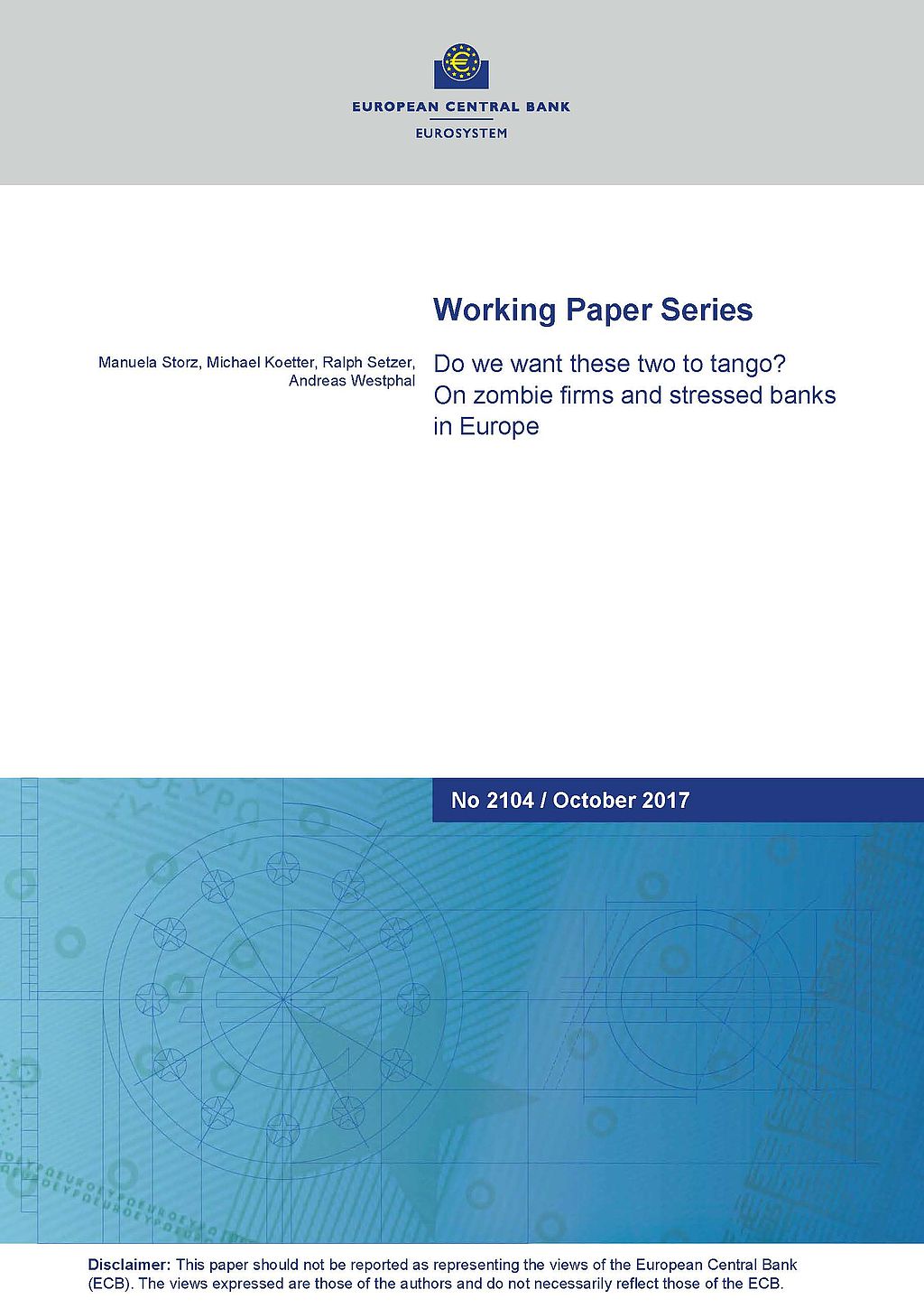
Do We Want These Two to Tango? On Zombie Firms and Stressed Banks in Europe
in: ECB Working Paper, 2017
Abstract
We show that the speed and type of corporate deleveraging depends on the interaction between corporate and financial sector health. Based on granular bank-firm data pertaining to small and medium-sized enterprises (SME) from five stressed and two non-stressed euro area economies, we show that “zombie” firms generally continued to lever up during the 2010–2014 period. Whereas relationships with stressed banks reduce SME leverage on average, we also show that zombie firms that are tied to weak banks in euro area periphery countries increase their indebtedness even further. Sustainable economic recovery therefore requires both: deleveraging of banks and firms.
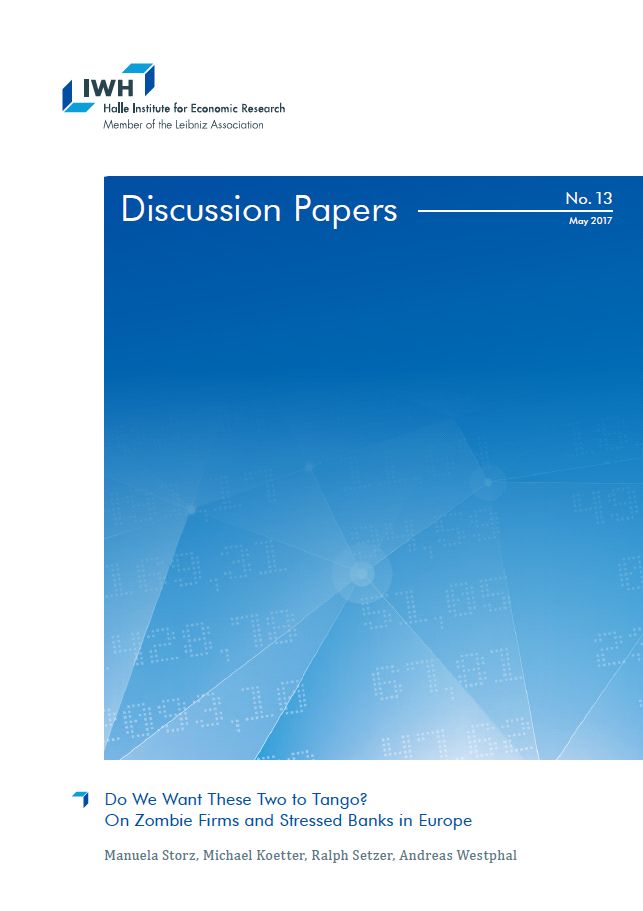
Do We Want These Two to Tango? On Zombie Firms and Stressed Banks in Europe
in: IWH Discussion Papers, No. 13, 2017
Abstract
We show that the speed and type of corporate deleveraging depends on the interaction between corporate and financial sector health. Based on granular bank-firm data pertaining to small and medium-sized enterprises (SME) from five stressed and two non-stressed euro area economies, we show that “zombie” firms generally continued to lever up during the 2010–2014 period. Whereas relationships with stressed banks reduce SME leverage on average, we also show that zombie firms that are tied to weak banks in euro area periphery countries increase their indebtedness even further. Sustainable economic recovery therefore requires both: deleveraging of banks and firms.

Inside Asset Purchase Programs: The Effects of Unconventional Policy on Banking Competition
in: ECB Working Paper Series, No. 2017, 2017
Abstract
We test if unconventional monetary policy instruments influence the competitive conduct of banks. Between q2:2010 and q1:2012, the ECB absorbed Euro 218 billion worth of government securities from five EMU countries under the Securities Markets Programme (SMP). Using detailed security holdings data at the bank level, we show that banks exposed to this unexpected (loose) policy shock mildly gained local loan and deposit market shares. Shifts in market shares are driven by banks that increased SMP security holdings during the lifetime of the program and that hold the largest relative SMP portfolio shares. Holding other securities from periphery countries that were not part of the SMP amplifies the positive market share responses. Monopolistic rents approximated by Lerner indices are lower for SMP banks, suggesting a role of the SMP to re-distribute market power differentially, but not necessarily banking profits.
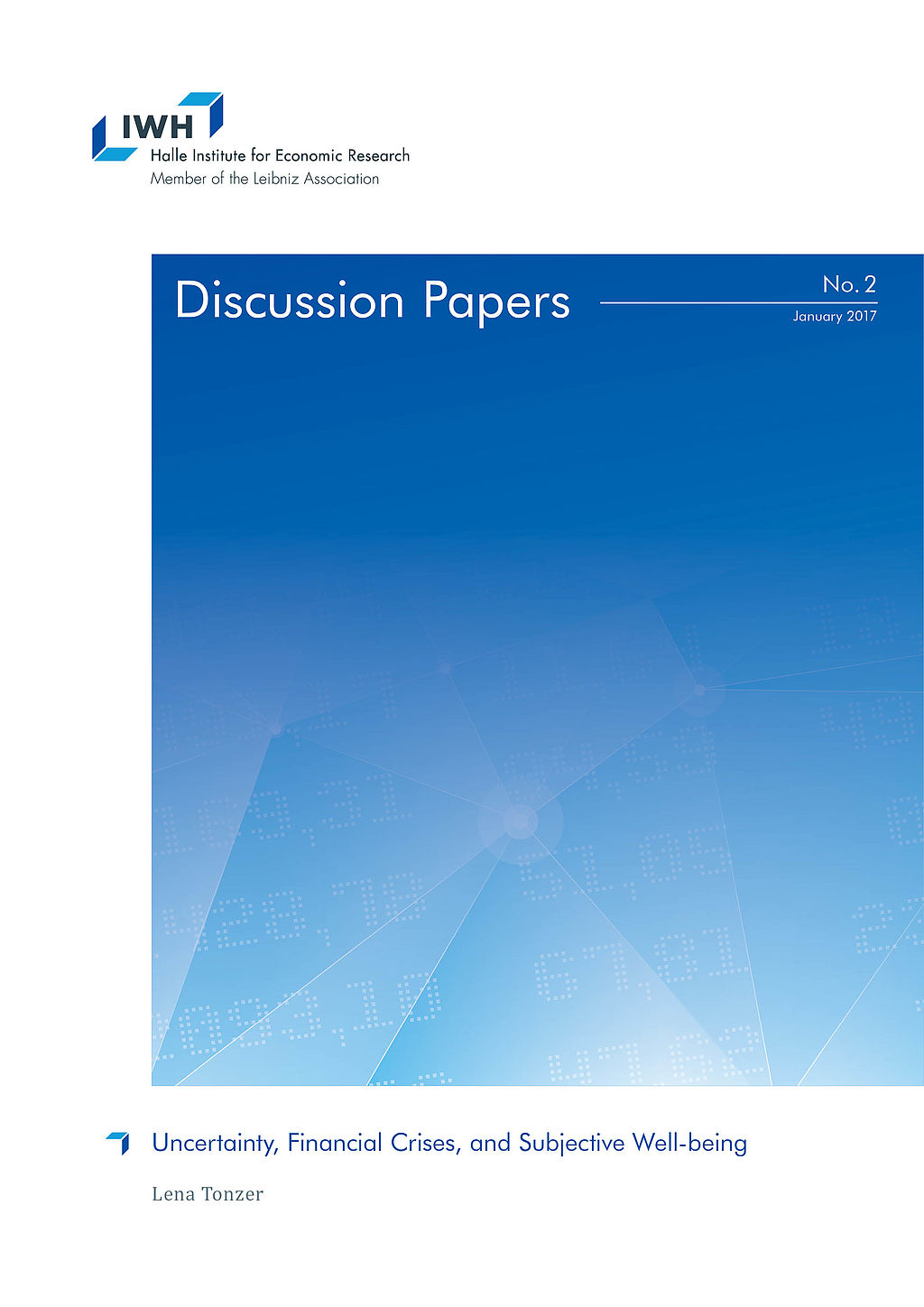
Uncertainty, Financial Crises, and Subjective Well-being
in: IWH Discussion Papers, No. 2, 2017
Abstract
This paper focuses on the effect of uncertainty as reflected by financial market variables on subjective well-being. The analysis is based on Eurobarometer surveys, covering 20 countries over the period from 2000 to 2013. Individuals report lower levels of life satisfaction in times of higher uncertainty approximated by stock market volatility. This effect is heterogeneous across respondents: The probability of being unsatisfied is higher for respondents who are older, less educated, and live in one of the GIIPS countries of the euro area. Furthermore, higher uncertainty in combination with a financial crisis increases the probability of reporting low values of life satisfaction.
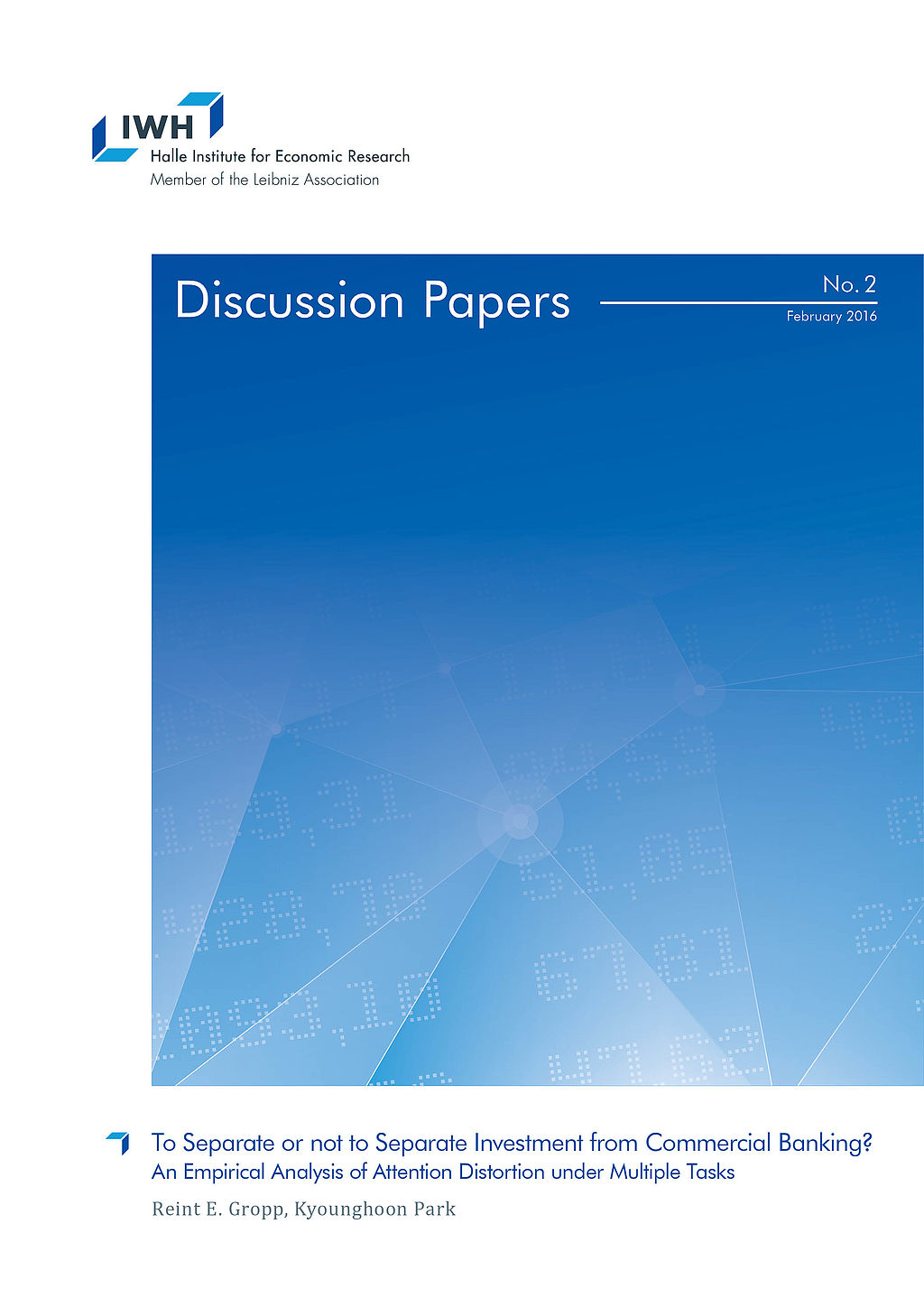
To Separate or not to Separate Investment from Commercial Banking? An Empirical Analysis of Attention Distortion under Multiple Tasks
in: IWH Discussion Papers, No. 2, 2016
Abstract
In the wake of the 2008/2009 financial crisis, a number of policy reports (Vickers, Liikanen, Volcker) proposed to separate investment banking from commercial banking to increase financial stability. This paper empirically examines one theoretical justification for these proposals, namely attention distortion under multiple tasks as in Holmstrom and Milgrom (1991). Universal banks can be viewed as combining two different tasks (investment banking and commercial banking) in the same organization. We estimate pay-performance sensitivities for different segments within universal banks and for pure investment and commercial banks. We show that the pay-performance sensitivity is higher in investment banking than in commercial banking, no matter whether it is organized as part of a universal bank or in a separate institution. Next, the paper shows that relative pay-performance sensitivities of investment and commercial banking are negatively related to the quality of the loan portfolio in universal banks. Depending on the specification, we obtain a reduction in problem loans when investment banking is removed from commercial banks of up to 12 percent. We interpret the evidence to imply that the higher pay-performance sensitivity in investment banking directs the attention of managers away from commercial banking within universal banks, consistent with Holmstrom and Milgrom (1991). Separation of investment banking and commercial banking may indeed be associated with a reduction in risk in commercial banking.














